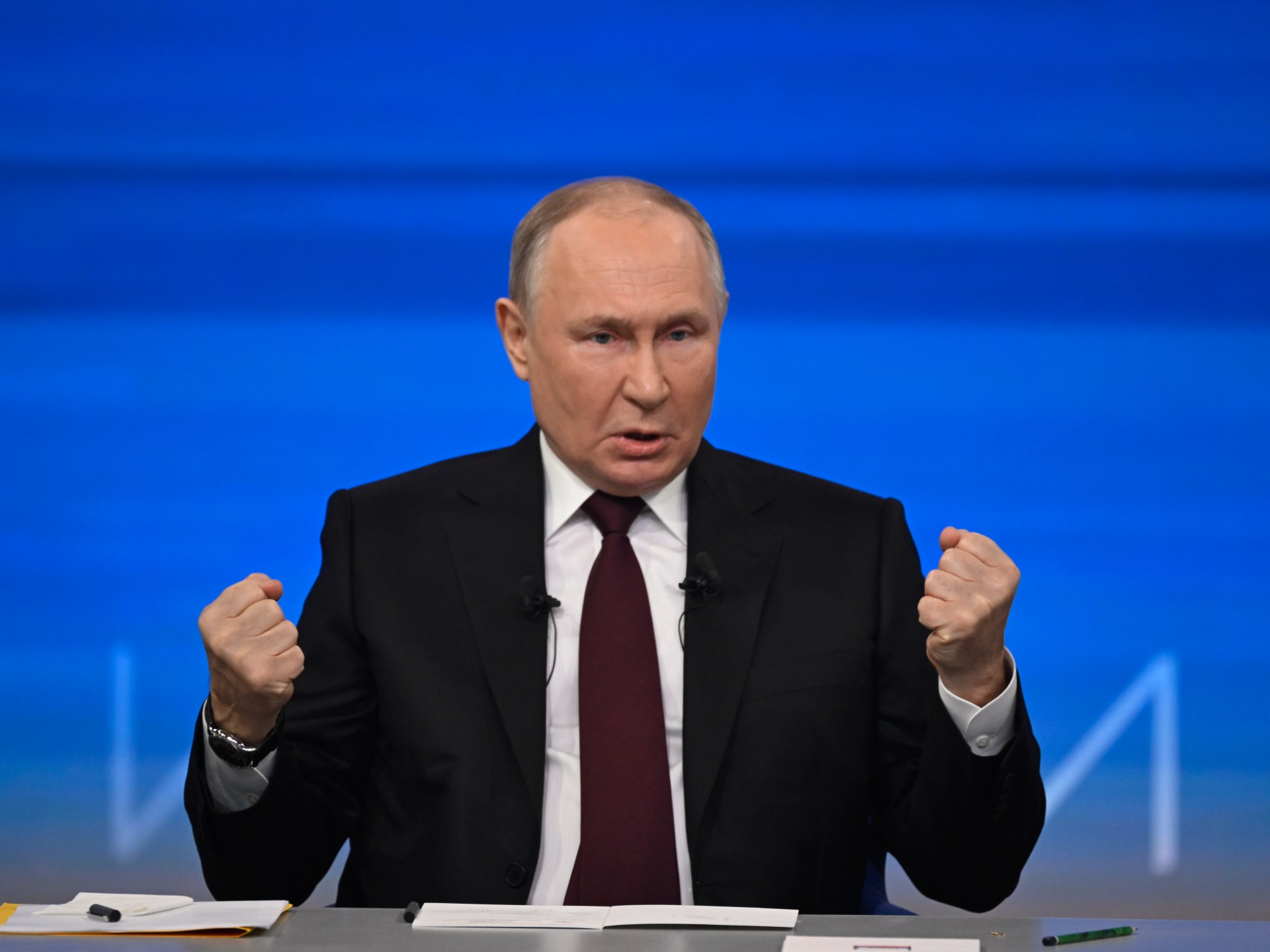Political writer for Al Jazeera Net: Putin restored Russia's status as a great power after it was removed from the global balance of power (Anatolia)
Moscow -
The voting process for the presidential elections in Russia entered its second day on Saturday, amid expectations that current President Vladimir Putin will win an overwhelming majority of votes, which automatically means the elections will end without heading to a second round.
If this happens, it will be the fifth time that Putin assumes the presidency in Russia, after he was re-elected in 2018 for a presidential term, before adopting constitutional amendments in 2020, called “resetting presidential terms” (beep), allowing Putin to run for the presidency. Until 2036.
Former Russian President Yeltsin (left) with then Prime Minister Putin in the Kremlin in 1999 (Reuters)
The nineties era
Putin assumed power from the hands of Boris Yeltsin, in light of a poor economy plagued by crises, which was either in a state of free fall or slow decline throughout the nineties. This period was characterized by phenomena that were anomalous from the “sanitary rules” of the market economy, as speculation and monopoly of goods became widespread, and Payment of salaries, rampant inflation, and continuous and unexpected jumps in the exchange rate of the ruble (the local currency) are to its disadvantage, in addition to the huge budget deficit and national debt, default, and non-payment of wages.
To this list can also be added managers of questionable integrity, the state of near-bankruptcy of institutions, and the overwhelming power of gangs.
This was all during the years of peace, when data and reports indicated that the growth of the Soviet economy during World War II was better than the era of the 1990s, which brought the superpower back to the ranks of Third World countries in many fields, despite the huge strategic reserves of wealth, especially oil and gas.
In addition to this is the decline of Russia's significant role in the international arena, and the internal unrest it witnessed, which was accompanied by the growth of separatist sentiments, or those demanding a wider margin of sovereignty among many geographical components within the country, which at some stages took the form of armed rebellion.
These data have played a tangible role in evaluating Putin's performance in running the state since 1999, and in many cases formed the basis of any approach, based on the factor of comparison between the eras of the first and last Soviet president, Mikhail Gorbachev, and the first president of Russia after the collapse of the Soviet Union, Boris Yeltsin.
On the verge of collapse
According to what political writer Alexander Novogilov told Al Jazeera Net, “Putin led Russia at a time when the country was in a perilous state, both economically and politically. The economy was in recession and the population was poor.” He added, “North Caucasus separatist movements also created their own enclaves that expanded.” Over time, this put Russia's territorial integrity under direct threat."
Novogilov continues, "The strict regime established by the new head of state was able to put an end to these threats and restore the state's powers, as well as implementing a wide-ranging regional and administrative reform, which revived interaction between the center and the regions, and consolidated the state's control over all aspects of life there."
According to him, “Putin was able to achieve two main goals: preserving Russia’s unity, and restoring its position as a superpower on the world stage, after it had been almost expunged from the global balance of power, before it returned after a decade and a half to the global arena, as one of the largest players.” The most influential geopoliticians and military figures.”
Regarding internal matters, the writer gives examples such as the growth rates of the main index, “where Russia now occupies advanced positions according to the global average, in addition to the scourge that the Russian economy has always suffered from, represented by inflation, as it achieved a record high in the post-Soviet period, in line with Indicators applicable within prosperous countries.”
The same speaker points out the tangible improvement in social prosperity and the significant decrease in crime rates, “as the number of premeditated murders and attempted murders, for example, decreased more than 5 times.”
Social inequality
On the other hand, political writer Sergei Surzhikov says, “Putin has been unable to address what he describes as the very large income disparity among the population, the chronic lack of investment in the economy, and the very low share of investment in the gross domestic product.”
He also notes the continued unpredictability of the economic and political landscape, adding that “companies operating in Russia often prefer to register property and transactions abroad, to avoid possible takeovers by the state, or as a result of irresponsible decisions by courts.”
Surjikov explains that, in addition to other factors, “the country has been subjected to a process of flight of qualified personnel, as a result of the lack of promising jobs with high wages, due to weak demand from the state, and the near absence of the private sector working in the field of high technologies.”
The same political writer also believes that the integration processes in the CIS countries have failed, and that none of them - including Belarus and Kazakhstan - constitute real strategic allies for Russia, whether militarily or politically, calling them a “situational partnership.”
He pointed out that the 2014-2018 crisis fully demonstrated this, asking, “Where was the support of all these countries in Syria, the Crimean Peninsula, and the Ukrainian issue?”
Source: Al Jazeera

